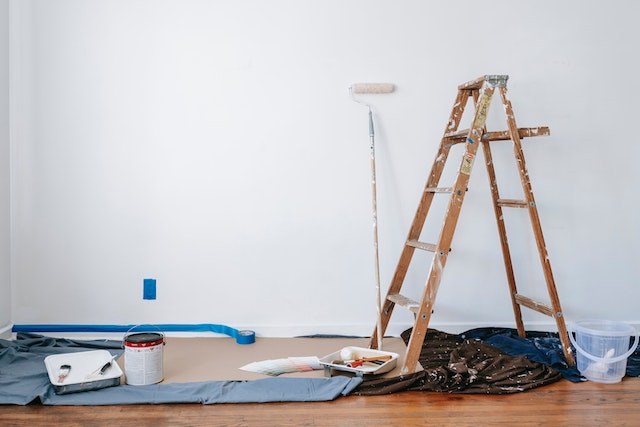
Maintaining a rental property is an important part of being a good landlord and guaranteeing the well-being and happiness of your renters. When it comes to property maintenance, both landlords and tenants have particular responsibilities.
In this article, we will look at several areas of property maintenance, such as the legal duties of both parties and different alternatives for effective property care.
Landlord's Property Maintenance Duties
1. Provide Appropriate Trash Containers
Landlords should provide appropriate garbage containers and enforce explicit garbage disposal standards. To keep the place clean and sanitary, garbage collection services should be scheduled on a regular basis.
2. Provide Running Water
Access to clean, running water is a basic requirement. Landlords are responsible for ensuring that all plumbing items, such as toilets, washbasins, and showers, are in good working order. To avoid tenant discomfort, address any water-related problems as soon as possible.
3. Comply With All Building Codes
Local building and housing codes must be followed. Landlords are responsible for keeping their properties up to standards by completing necessary upkeep and building improvements. Failure to do so may result in sanctions and legal implications.
4. Keep the Property's Communal Spaces in Good Condition
If you own an apartment complex, common areas such as corridors, stairways, and passageways should be properly maintained and secure. The landlord is responsible for the periodic upkeep and cleanliness of these places.

5. Conduct Repairs
Landlords must respond to tenant repair requests as soon as possible. This involves repairing electronics, plumbing systems, power systems, and building issues. Overlooking maintenance needs may result in tenant frustration and litigation.
6. Ensure Essential Amenities Are Operational
The heating system or HVAC, cooling, and electrical systems, for example, should be in excellent condition. Inspections and upkeep on a regular basis can assist in preventing malfunctions and maintaining tenants’ quiet enjoyment.
Tenants Are Legally Responsible for Property Upkeep
Tenants are also legally responsible for the upkeep of a rented property. These duties contribute to the property's safety and sanitation. Tenants are also liable for helping with property maintenance in the following ways:
1. Keep Their Unit Sanitary
Residents are accountable for always keeping their rental units hygienic and tidy. This involves regular housekeeping, efficient trash disposal, and insect infestation prevention.
2. Maintain a Safe Environment in Their Unit
Renters should take precautions to protect the safety of their rental property. This involves immediately notifying any potential dangers to the landlord, such as snapped locks or bad wiring.
3. Report Issues Immediately
It is critical for both landlords and tenants to communicate openly and promptly. Tenants should promptly report any problems with upkeep or safety issues to the landlord to avoid further damage and ensure quick correction.

Since these emergency issues can happen after regular inspections, it is best for tenants to coordinate with the landlord so all parties can arrive at a favorable resolution.
4. Conduct Repairs
While landlords are in charge of significant repairs, tenants can handle small maintenance jobs like changing light bulbs, replacing air filters, and unclogging drains. This proactive strategy can help in saving time and resources.
5. Seasonal Maintenance
Seasonal maintenance duties including pruning trees, clearing gutters, and winterizing the property are critical for property maintenance. Landlords and tenants can work together to execute these activities as needed, retaining the property's marketability as well as its amenities.
Ilegal Maintenance Requirements
It is critical to differentiate legal from illegal property maintenance needs. Landlords must be reasonable with their property upkeep requests to foster a positive relationship with tenants.
Requiring tenants to do beyond basic maintenance tasks may result in possible safety issues and property damage. You can find some examples of prohibited maintenance obligations below:
Unauthorized Repairs
These include plumbing, electrical, and HVAC system repairs, structural issues, gas appliances, big appliances, roofing problems pest control, and more.
Landlords should empower tenants to report maintenance concerns as soon as possible, as it is the landlord's legal responsibility to ensure that these repairs are done by certified professionals to preserve building safety and integrity.

Demanding Excessive Security Deposits
Examples include requesting deposits more than the legal limit, non-refundable deposits, unjustifiable deposit hikes, and additional deposits for upgrades.
To minimize legal conflicts and financial fines, landlords should follow local rules, provide transparency, and demand reasonable security deposits.
Withholding Utilities
Shutting off utilities, decreasing heat during the cold, intimidation, and lockouts are examples. Tenants have the right to expect livable conditions and basic services in accordance with their contract and local regulations.
Landlords who engage in such tactics may suffer legal repercussions, such as penalties and fees. A great landlord will focus on lawful, open communication.
Forcing Tenants to Undertake Maintenance Tasks
Examples include making renters perform significant repairs, structural issues, complicated maintenance jobs, and pest management that should be handled by the landlord. This might lead to tenant frustration and legal problems.
To preserve a pleasant landlord-tenant relationship, landlords should be aware of their legal duties and interact appropriately.
Bottom Line
The upkeep of a rental property is a shared obligation of landlords and tenants. Both parties are legally obligated to keep the property secure, sanitary, and comfortable. It's also important to conduct regular property inspections as well as move-in and move-out inspections.
While landlords are responsible for major repairs and building code compliance, tenants are responsible for maintaining their living spaces and following safety requirements.
A harmonious and well-maintained rental property requires effective interaction and partnership between landlords and tenants. Both parties can contribute to a positive and long-term rental experience if they understand their respective roles and obligations.
At Lone Eagle Management, we are committed to helping and assisting landlords like you.
Our professional team is available to answer any questions or provide assistance regarding your legal duties, or any other aspect related to optimizing your profits and property ownership.
We can work together to keep your properties in good condition and your landlord-tenant interactions happy and productive.